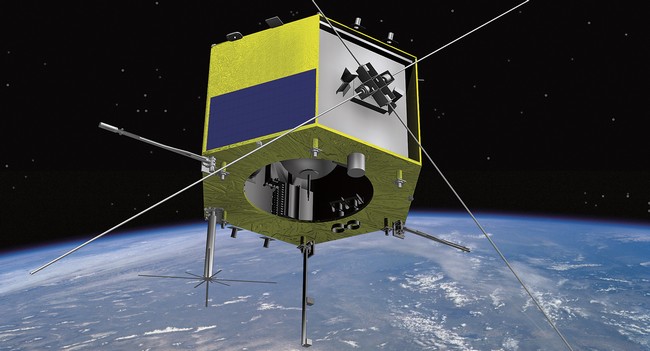Despite the fact that the infrastructure of access to the global network is improving with each passing year, the average Internet speed in the world is still quite low – 3.1 Mbit / s. To transfer a file of 100 GB with a speed take about three days, which is not good for the digital age with the world in her clenching millisecond pings. Launched recently deployed by the modernized rocket Falcon 9 1.1 Canadian satellite CASSIOPE can reduce the transmission of files of tens of gigabytes to 90 minutes.
The Canadian Space Agency has started to work on the creation of a universal platform that will form the basis of the program CASSIOPE since 1996. The satellite, which was launched a few days ago, weighs about 500 kg and its dimensions are 1.22 x 1.83 meters (width x height). It houses two payloads: an improved system of monitoring of near space Enhanced Polar Outflow Probe (e-POP) and Ka-band transponder Cascade Technology Demonstrator.
The system of e-POP is a set of eight scientific instruments that collect data on solar and cosmic storms in the upper atmosphere of the Earth and exploring its impact on communications and navigation signals of GPS. Ka-band repeater, in turn, is intended to prove the concept of orbital courier.
The concept is simple – instead of computer networks to store and transfer information using multiple satellites. Users can then simply upload the file to the satellite at a rate of 2100 Mbit / s, which is twice as much compared with the capabilities of the network Google Fiber, using a radio-relay links. Satellite stores data in its memory until until it reaches receiver position to pass blocked. Since CASSIOPE revolves around the Earth more than a dozen times a day to give huge amounts of data will take about 90 minutes.
Of course, satellite internet is clearly not in the ordinary users. Supervises project CASSIOPE company MacDonald, Dettwiler and Associates (MDA), which is pursuing the same goal – to generate interest from large corporations, non-governmental organizations or government agencies. It is worth noting that the ability to send and receive large files from anywhere in the world is particularly attractive in the case of natural disasters.
If successful, the company plans to launch the MDA many of the same satellites that will provide access to ultra-fast Internet worldwide.
Read another very interesting article about alternative energy of the Sun, water and air.





